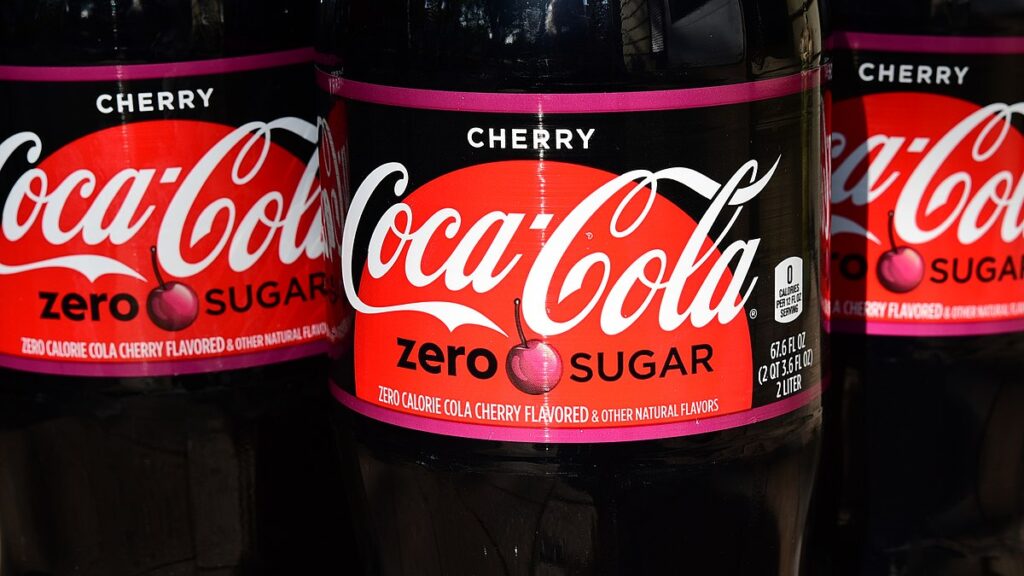Men’s testosterone levels are historically at an all-time low, partly due to how common sedentary lifestyles are in the modern world, and also rising levels of obesity. There are so many variables that can impact testosterone, including diet. In today’s post we’ll be looking at the popular artificial sweetener aspartame and look to answer the question, does aspartame lower testosterone?
Aspartame is found in many sugar-free drinks and foods, so it’s useful to know the potential impact of this common ingredient.
A healthy level of testosterone in men is vital for supporting strong male characteristics, energy and focus, muscle mass, and bone health. Read on to understand why testosterone is so important and ways we can naturally increase testosterone.
Does aspartame lower testosterone?
Yes, studies have actually found the artificial sweetener aspartame to have a negative impact on testosterone. Aspartame has been shown to increase oxidative stress and damage to the male reproductive system.
One study looked into the long-term effects of aspartame on the male reproductive system and found some shocking results! The study was carried out on 4 groups of 36 male mice. Three groups received aspartame at doses of 40 (low), 80 (medium), and 160 (high) mg/kg each day for 90 days, the control group received a normal saline solution of 0.5ml a day.
The results found after 90 days were surprising, the high-dose group compared to the control group had a 26% decrease in testosterone. There was also significant damage in the medium-high dose groups to sperm DNA, resulting in sperm abnormality, decreased sperm count, sperm motility, and viability.
It was found in the study that aspartame has an impact on Leydig cells and as a result decreases testosterone levels. Leydig cells are the primary source of testosterone in males, and they play a crucial role in vital physiological processes such as the production of sperm and sexual development.

Why is testosterone important?
Testosterone is a sex hormone that has an important influence on various functions within the body, particularly for men. Testosterone regulates a man’s libido (sex drive), sperm production, strength & muscle mass, and bone density, as well as increasing the production of red blood cells. After around age 30, men’s natural testosterone levels gradually decrease.
If your testosterone levels are too high or too low, it can affect your overall health, this applies to both men and women. It’s becoming increasingly common for men to have testosterone levels below normal. In fact, it has been found that men’s testosterone levels have been dropping 1% a year since the 1980s.
Low testosterone can be caused by the following:
- Age
- Injury or diseases involving the testicles
- Pituitary gland problems
- Critical illnesses
- High levels of stress
- Certain medications
How low testosterone can affect your health:
- Depression
- Low sex drive
- Erectile dysfunction
- Low sperm count
- Decreased strength and muscle mass
- Increase in body fat
- Decreased focus
The above explains why testosterone is a vital hormone to men which has a major role in the quality of our lives. We must look to increase this level naturally if possible, through exercising and lifting weights, eating a healthy high-protein diet, prioritising sleep, and minimising cortisol levels. We may also be able to increase our testosterone levels with cold water therapy.
What can we do to increase testosterone?
Here are some natural ways we can increase testosterone naturally;
- Diet: Prioritise eating a healthy whole-food balanced and high protein diet over processed junk food. Foods that promote increased testosterone include; fatty fish such as salmon, magnesium-rich greens such as spinach and kale, and healthy fats such as avocados and nuts
- Manage stress effectively: Increased levels of cortisol and chronic stress have been shown to decrease testosterone so we must manage stress effectively to allow your body to function as designed
- Exercise: Resistance training such as lifting weights is optimum for increasing testosterone levels but endurance training is also important to support strong cardiovascular health
- Cold water therapy: Pre-cooling before exercise has been shown to increase testosterone levels
- Prioritise sleep: Aim to get around 8 hours of sleep a night to support healthy hormone production
- Supplements: Natural testosterone supplements can include Vitamin D, ginger, magnesium, and ashwagandha.



Leave a Reply